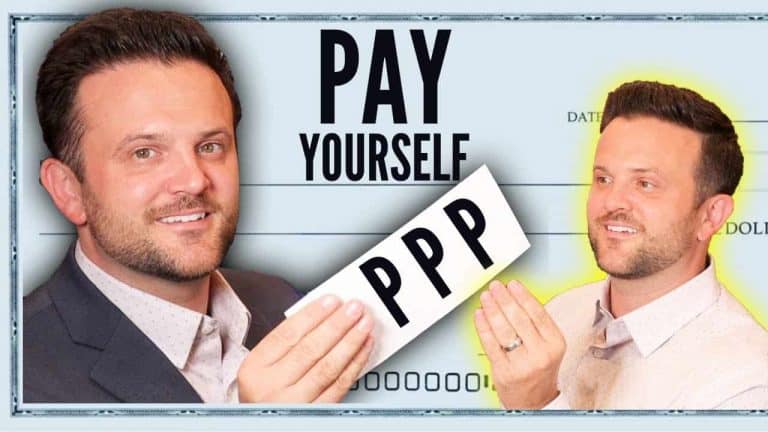Everything You Need to Know About How Does Cryptocurrency Get Taxed

Watch the video below to get all of the details about how does cryptocurrency get taxed, including why I think it’s best to hold longterm. Enjoy!
Links Mentioned In This Video:
- Coinbase get $10 free Bitcoin – https://teachingmillionaires.com/recommends/coinbase
- Gemini get $10 free Bitcoin – https://teachingmillionaires.com/recommends/rich-gemini
- Kraken – https://teachingmillionaires.com/recommends/kraken
- Ledger Nano Hardware Wallet – https://teachingmillionaires.com/recommends/ledger-nano
- Rich’s Blog on “What is Bitcoin and How Does It Work?” – https://teachingmillionaires.com/what-is-bitcoin-and-how-does-it-work
[elementor-template id=”5030″]
Video Transcript:
Nobody wants to pay more taxes than they have to. So learning how cryptocurrency gets taxed could potentially save you hundreds, if not thousands of dollars come tax time. Now, like most things tax related, it can get a little complicated. So today I’m going to share with you how cryptocurrency gets taxed. And then that way you can kind of do a little tax planning to save yourself some money. You’re not going to want to miss this.
So you heard, right? Cryptocurrency
Has been on a lot of people’s radar this past year and come tax time. It’s actually going to complicate things. If you’ve been doing a lot of buying and selling of different types of coins. In fact, this past tax season, I was working with my guy, shout out to Jeff and Jeff was like shaking his head. He’s got, he’s like, man, these, these 17, 18 year olds they’re coming in. I thought it’d be simple returns. They’re coming in with unemployment money. They’re coming in with like cryptocurrency forms that need to be filled out. Needless to say, things are getting a little complicated, but don’t worry. I’ve done the research for you. So I’m going to try to break it down using some really simple terms this way you can kind of know what to expect when it comes time to actually file your taxes.
Oh, and real quick, if you haven’t already drop a little, like down below by hitting that thumbs up button, it really helps the YouTube algorithm. It’s going to get this video out to way more people. I really appreciate it. So thanks. So the first question we have to answer is, is cryptocurrency currency or property. And it really depends on who you’re asking, but in this case we’re asking the IRS, the internal revenue services, like how are we supposed to treat these cryptocurrencies? Well, in the eyes of the IRS, it’s actually treated as property. Meaning it’s not treated as currency. Now the fact that it’s treated as property is going to have some advantages, but also some disadvantages. And of course, I should say for any of my international friends, this is specific to America. How it’s taxed in different countries is going to vary.
So the IRS said, okay, Hey stocks, bonds, cryptocurrencies. We’re going to tax those as, as property, as in the form of like property taxes. Now don’t get confused with real estate taxes. Those are separate. So if you’ve got like collectible art stocks, bonds, cryptocurrencies, they’re going to sort of fall into the same sort of property tax category. But this is where it starts to get a little complicated too, because how you got the cryptocurrency, like how you acquired it actually has an impact on your taxes. For example, if you’re doing your own mining of cryptocurrencies or you signed up for like a, like a free, free link down below in the description for a company like Gemini or Coinbase, or if somebody pays you like in like, Hey, thanks for those goods or services. Here’s some crypto. Well, in those three situations that cryptocurrency is actually taxed as regular income tax.
And all that means is you take the price of the crypto when you got it. And it’s going to count on your own personal tax return for your own personal tax rate. Now I’m not trying to lose anybody here. I just wanted to point out a few key, like differences between how the rest of the cryptocurrency we’re going to be talking about would actually have different tax advantages and disadvantages. So let’s keep going. You see, most of us are going to buy and hold cryptocurrencies as an investment. So like any investment, like the collectible art, the stocks and the bonds, then that investment has some tax consequences. And we’re going to call those like short term gains or long-term gains. Now, most of us were buying cryptocurrencies as investments. Like we’re going to buy them and hold them. And similar to other investments. I, I, I mentioned that earlier, like collectible art or stocks and bonds, then the property tax that applies to those types of investments is actually going to fall into the capital gains tax rules.
Now this is whereby my, my tax guy, Jeff is he’s getting in trouble with these, these younger investors. They don’t know any of these rules. So they’re buying doge coin. They’re selling doge coin. They are there, they’re buying and selling like crazy. And what happens is you actually have more favorable, typically more favorable tax advantages if you buy and hold long-term. So they call that long-term capital gains. And all that means is if you keep something for like a year longer than they’re going to give you a little break on paying the taxes when you go to sell it. But if you’re buying stuff and flipping it and buying it and selling it, then you got to pay something called short term capital gains. And all that means is that you’re taxed at your regular income tax rate. If you held that investment for less than one year, therefore you kind of want to think, at least in my opinion, that cryptocurrency is a long-term investment by the ones that you like, hang on to it.
And then when, and if you ever go to sell it, you’re going to have more favorable tax treatments, because they’re going to look at things like how much money you make. If you’re married, there’s ways to pay, like almost 0% long-term capital gains. You just have to sort of work that out and do some tax planning. Now some of you might be thinking about, well, what if I sell it? And it goes down well, yeah, you can, you can claim the capital losses to lower your tax burden. Also, there’s just some specific requirements, some documentation some specific figures that you’re going to want to learn about in order to do that as well. Now here’s where it can get really, really, really sticky. Here’s what I mean, the is on you and me right now, at least some of the major cryptocurrency exchanges are not sending out tax forms.
So imagine all these accountants and, and they know about these rules and this past tax season, you know, a company like Coinbase says, we’re not going to send out any tax forms. So now you need your own meticulous records of all your transactions, what you paid for them when you bought them how much they were, you know, solid for when you sold them, the dates. And, and that just becomes a logistical nightmare. And also they just got rid of like an old tax rule that sort of applied to like, and it still does to like real estate where you can do like a exchange in kind like a like kind exchange. So basically that only applies to real estate. If somebody tells you that, like it’s not going to apply to the cryptocurrencies. And they’ve also clarified like things like, well, what if I lose my keys?
Like I can just claim that as like a tax loss. And they kind of got rid of that as well. So, you know, you’re responsible for knowing these rules and they’re not really advertised yet. And, and we’re all still learning. So I just wanted to put a few of those things out on the table right now. Now looking further down the line, the adoption we’re early right now, the adoption of things like Bitcoin, Ethereum, they’ve been in the news, but they’re, they’re only going to increase in my opinion. So start to realize that you might hear of having the ability to put some cryptocurrencies in different retirement vehicles, like a, like a 401k or IRA. And when you do that, those are going to have a similar tax treatment to other types of assets that you hold in those retirement accounts. So the rules for the vehicle still apply, meaning the, the 401ks, but you know, you’re holding them long-term so now you can start to see how this could be extremely valuable.
When you start thinking a little bit more long-term, let’s get a little ahead of ourselves because it’s gonna, it’s going to be rare to kind of be able to do that at this point in time, but I think it is coming up hopefully pretty soon. So a couple of key takeaways on how cryptocurrency gets taxed. I would recommend working with a tax professional. I’m the type of guy that loves research in this stuff. And I always used to do my own taxes and, and now I, I have someone that I can bounce ideas off of, and we can, we can kind of learn together as, as the landscape of this crypto world begins to change things. Also remember that you need to keep your own meticulous records until the exchanges starts sending out these, these tax forms and an annual basis, the onus is going to be on you to sort of self-report and self-certify that you’re doing everything properly.
Now. That’s not to say that some of the companies I’ve heard like Robin hood, for example, they’ll, they’ll send out the tax forms. That’s not to say that it’s not coming soon, but for the foreseeable future, just remember to kind of keep your own records also how you acquire the cryptocurrency does matter if it was given to you if, as a gift if, if you’re mining it, I saw a great video. Someone was like using their Tesla to whatever. If, if, if you if you bought it from an exchange, okay, it all has different tax treatments. So just be aware of that because those rules will be made a little bit more clear. The more time we spend, you know, year after year doing this sort of thing. And really, if I could just break it down, holding the cryptocurrencies longer than a year is probably what you’re looking to do.
Of course, I know people always say, you know, by the dip you, you can see when things start to peak, people are selling off and I, I totally get that. I like locking in gains myself, but I usually do that with, with the play money or with the accounts that I know I’m going to then have to pay some taxes on. You know, if you’re trying to put something like five, 10, even more percent of your net worth into different cryptocurrencies, then it’s a good idea to just hold long-term so that you realize not only the gains, but also the tax advantages that come with holding long-term as always, I’ll leave a link down below to a few different exchanges that I love always referring people to. And if it’s your first time signing up, I think they give you like some free Bitcoin. So be sure to check those out. Also, my website is full of different resources. I’ve done some articles on the basics written some blog posts and some podcasts. You can pass those along to a friend or listening for yourself. Just go check it out. I really appreciate everybody that visits the site. Also, if you’re new to the channel, don’t forget to hit subscribe and ring that notification bell. All right. As always I’m rich. And until next time.








One Comment